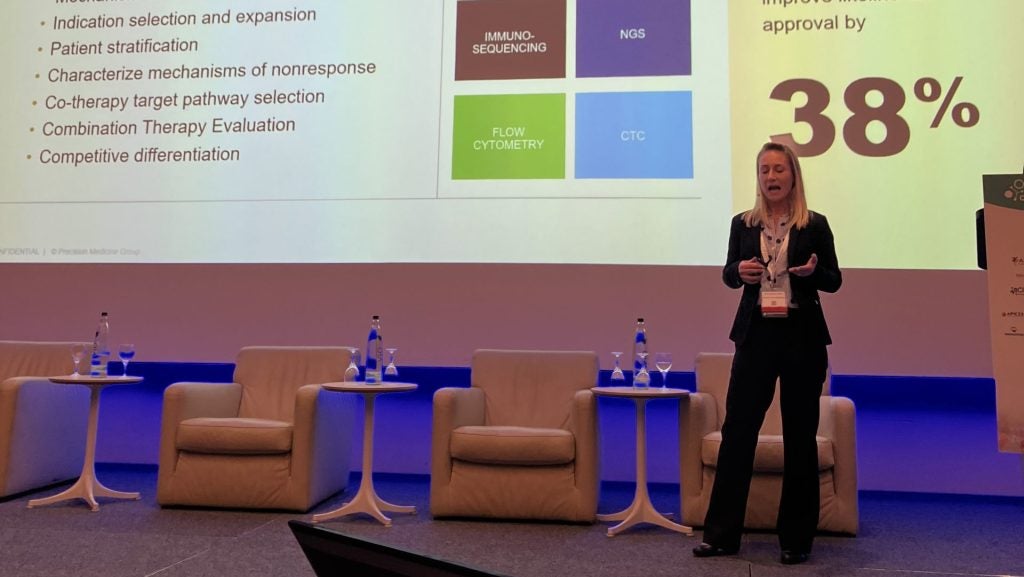Precision medicine oncology trial designs improve the likelihood of a drug’s approval by 38%, based on a presentation held by Alexis Hobbins-White, senior director of operational strategy at the clinical research organisation (CRO) Precision for Medicine.
Hobbins-White was speaking at a session at the Clinical Trials in Oncology (CTO) Europe 2023 conference in Munich, Germany, taking place 28 – 29 November.
However, using a biomarker-driven precision medicine approach in early phase oncology trials requires greater attention to trial locations since there are usually fewer eligible patients, said Hobbins-White. Epidemiology data and regulatory insights are both sources of how to identify potential patients that could be recruited in such studies, noted Hobbins-White.
Identifying such patients can be a burden for both the main clinical sites and the patients themselves, said Hobbins-White. This is where referral and virtual sites which can be used to pre-identify potential patients, come into play. These can reduce the strain on the main clinical sites. Similarly, some clinical sites may use their own next-generation sequencing data to identify such biomarkers, which can be considered while selecting potential trial locations, noted Hobbins-White.
Overall, the burden on patients' needs to be reduced so they would want to take part in the trials once they are identified even if it is taking place at a different location than their hospital, she explained. Patient concierge services and travel support are also needed for this, added Hobbins-White.
Moving to late phase oncology trials, it is important to consider the opening of each clinical site and recruitment of the first patient, noted Hobbins-White. More recently, both the EU Clinical Trials Regulation framework and the Clinical Trials Information System are also notable considerations for late-stage trials, that often involve multiple countries, rather than in smaller studies, she added.
A potential approach here is in carrying out the regulatory submissions in separate cohorts, said Hobbins-White. According to her, this could involve submitting the first application and then filing the second one after the initial approval.
More late phase oncology studies are now expanding beyond the US into Europe and Asia, said Hobbins-White. At the same time, although the average number of sites per study has decreased, the average number of patients has grown in the past years.















